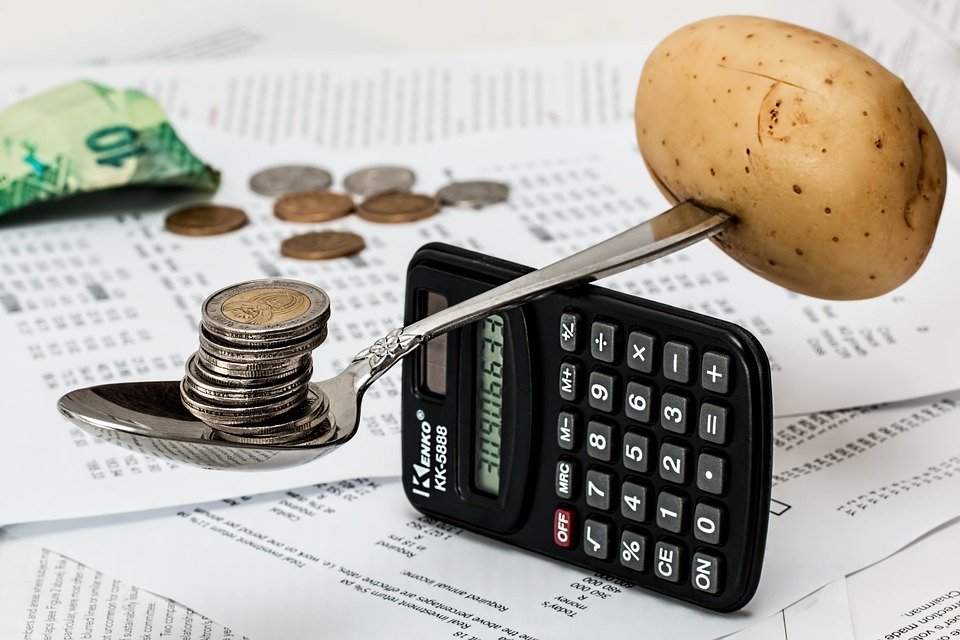One Way to Deal With Inflation

Inflation is here to stay for a little while and it is an issue that pretty much everyone across the globe is having to deal with. Forget the reasons it's here and why we have to deal with it. The fact is that it is here, and we have to deal with it.
So, what does one do?
You simply have to be more on top of things, especially in the area of spending, and particularly in the area of food. Because for most of us it is going to be one of the higher areas of spending—and perhaps even one of the more important ones.
Fuel for our cars notwithstanding of course.
Taking advantage of things when they are on sale is one of the ways we can circumvent some of the issues of inflation. The key here is to make sure one has money on the sidelines available in order to take advantage of them when those sales come around.
And they will come.
There is one "side benefit," if you will, to the issue of inflation. And that is that regardless of how bad someone needs something, there are still going to be certain pullbacks by consumers to buy things.
Regardless of whether everything costs more, consumers still at least have options. One can forego buying beef for example and buy cheaper chicken instead. And of course, people can simply not buy certain things for a little while like eggs and bread.
While everything is going to cost more, as a general rule some things even at higher prices will cost less as a matter of unit cost, and are things that can be stretched a bit further.
Eggs and pasta are an example of this. Which incidentally can also be used to make more expensive things like meats and vegetables go further.
Some of the 'resistance,' if you will, invariably will leave some things on the shelf longer, incentivizing sellers to encourage people to buy them as the products near their maximum shelf life.

Businesses also fully understand that while discounts have power no matter what kind of economic situation may be present to move things, discounts have more power when the money supply is tighter.
In my local grocery stores, even at the big chains, one can often find "manager's specials" and the likes on certain meats for example. When times are good, while everyone likes a deal, many people might walk past a package of chicken thighs greatly marked down one or two days prior to the sell-by date simply because one can afford to pay a bit more for something a bit fresher.
In leaner times more consumers will be willing to opt for the discount than pay a premium for something that isn't.
So, even if the discounts are still more costly than they may have been before inflation, consumers who are now more apt to be looking for any bargains they can find will be more influenced to buy something because of the discount.
The bottom line here is that there are still going to be ways to stretch even stressed dollars just a wee bit more and get more bang for your weakened bucks.
I said that you need to have money on the sidelines, though, in order to take full advantage of any discounts you may be find.
As Rush Limbaugh famously once said about inflation, "You don't have to play if you don't want to." In other words, there are things you can do to give yourself an upper hand.
People without money aren't going to have it to buy an extra pound or two of that chicken on sale, so naturally they have a disadvantage over someone that does, and inflation as a result will always hit that person harder than someone who can afford to stock up at a cheaper price.
The key takeaway here is that being creative about your spending habits and really knowing your prices can make a huge difference in how far your money goes even when it still won't go as far as it did before things started rising in price.
Sure, one can always try to simply make more money—but really, that is much harder to do than it is to simply stretch what you already have. At the same time it's not necessarily necessary.
I have talked incessantly as well about the power of investing during times like these. For example, looking for both companies that can do well during inflation, or that pay dividends at a percentage higher than the rate of inflation.
It is simply another way to offset or hedge against some of it and continue to stretch every dollar you have.
Again, that takes money. And people who have more of it will have advantage over those who don't.

That is another 'side benefit' of sorts when it comes to inflation. People are forced to be much more aware of their money and their spending habits. And one of the things that happens after things settle down a bit is that some of those habits carry over to some extent when times get better.
If you put yourself in the right mindset now, there is not only an immediate benefit, but a long term one.
You can't beat inflation entirely. But what you can do is position yourself better as you operate within it. And when you do that, you lessen the overall impact you personally feel as a result.
When times are leaner you simply have to be more cognizant and more creative when it comes to spending your money. You have to be more focused and more calculating.
If you don't do these things, then for you, inflation will be a much bigger disaster and it will be much harder to catch back up when times improve.


When Inflation is up, I always thing to earn more, price are hardly down when they are up, compare the price of products you purchased a decade ago.